 United States (English)
United States (English)
Shopping Cart
Empty Cart
Part No: {{entry.product.code}}
Quantity: {{entry.quantity}}
Total {{cartInfo.totalPriceWithTax.value | currency:"$"}}
Total {{0 | currency:"$"}}
 United States (English)
United States (English)
Part No: {{entry.product.code}}
Quantity: {{entry.quantity}}
Total {{cartInfo.totalPriceWithTax.value | currency:"$"}}
Total {{0 | currency:"$"}}
Asia Pacific
Europe, Middle East, Africa
 România (Română)
România (Română)
 European Union (English)
European Union (English)
 België (Nederlands)
België (Nederlands)
 Belgique (Français)
Belgique (Français)
 France (Français)
France (Français)
 Deutschland (Deutsch)
Deutschland (Deutsch)
 Italia (Italiano)
Italia (Italiano)
 Nederland (Nederlands)
Nederland (Nederlands)
 Polska (polski)
Polska (polski)
 Россия (русский)
Россия (русский)
 South Africa (English)
South Africa (English)
 España (Español)
España (Español)
 Украина (pусский)
Украина (pусский)
 Україна (українська)
Україна (українська)
 United Kingdom (English)
United Kingdom (English)
 Česko (Česká republika)
Česko (Česká republika)
 United Arab Emirates (English)
United Arab Emirates (English)
North America
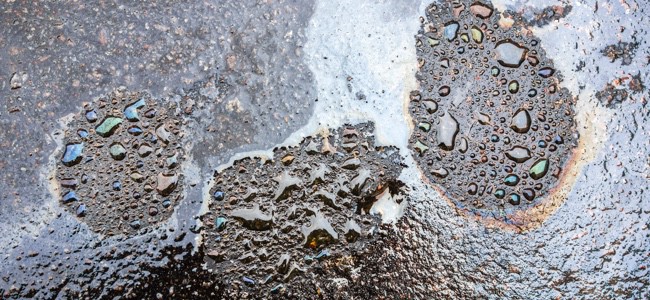
One day you see drops of coolant under your car…the next day, nothing. You keep a watchful eye on your vehicle and see the same situation play out over the next few days. What is going on with your vehicle? It can feel like your car is playing tricks on you. What can cause a gasket to leak sometimes and yet other times, seemingly function perfectly fine?
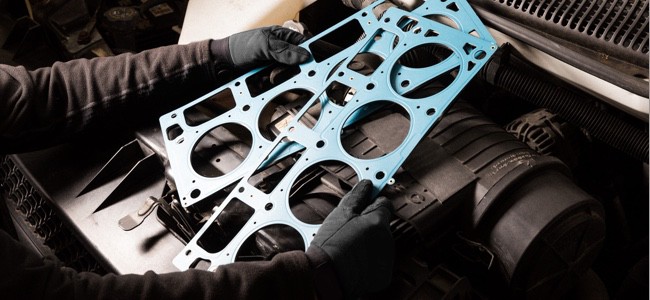
Gaskets are designed to provide a cushion and a seal between two engine surfaces. Engines, by virtue of their material and function, are subject to changes in temperature while engine parts are subject to movement. As the engine heats up, cools down, experiences pressure from compression and vacuum, engine parts expand, contract, move away from each other and are drawn tighter.
Because the engine experiences 360° of forces and stresses from every direction, the gaskets are heated, cooled and rubbed in all directions. A cold gasket reacts differently than a hot gasket, just as a gasket under increased pressure acts differently under decreased pressure. Read on as we take a look at three different gaskets in your vehicle and what can cause them to sporadically leak.
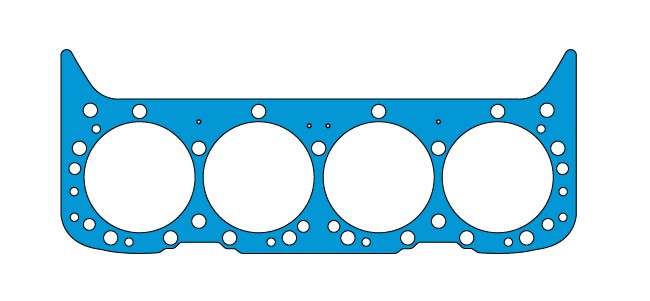
The cylinder head gasket sits between the cylinder head and the engine block. As the air/fuel mixture in the cylinders is ignited under pressure, the ignition forces the individual cylinder pistons away from the head. The result is vacuum pressure, compressing the head gasket against the gasket.
As the piston rides back up the cylinder on the crankshaft, it compresses the air/fuel mixture, and applies pressure to the head, forcing it away, slightly as it may be, from the gasket, at the very same points that were compressed moments ago. Repeat the process in a range of 2,000 to 6,000 times per minute, under varying temperatures, and you can see why a gasket might leak one moment and not the next.
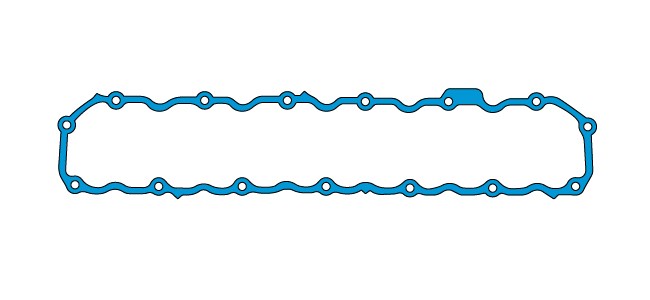
The valve cover gasket sits between a relatively thin steel cover, and a cylinder head, cast from iron, aluminum, or alloy (mixture of metals or metals and non-metals). When the engine is first started on a cold winter day, the oil that flows through the system could be 32° or colder. The gasket, like the cylinder head, and valve cover are just as cold. As the engine warms up, the oil, head, cover and gasket warm at different rates.
The heat generated by the friction in the head and engine block heats the oil. The heat radiated by the block, the head and the oil heats the valve cover. All three heat the valve cover gasket. You can see how this process might cause a leak at one point, say before the worn gasket has had time to acclimate, and cause a leak to seal itself at another point in the course of operation.
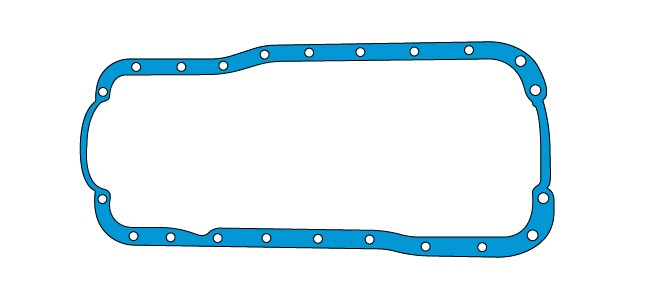
The oil pan gasket sits below the engine block in the area called the crankcase, named so because that is where the crankshaft resides. It is compressed between the crankcase and a durable steel pan. The pan is relatively thinner than the crankcase, which is generally cast from iron, aluminum or alloy. The same physical aspects that affect the valve cover gasket and the head gasket affect the oil pan gasket.
Oil resides in the oil pan when an engine is not running. As the engine heats up on a cold winter day, the oil, the pan and the gasket follow suit. When the engine is turned off and the hot oil returns to the pan, the three cool at different rates. Over time, a stressed oil pan gasket can fail at different times, either under the cold condition, the warm condition or under the moving conditions of the pan against the case.
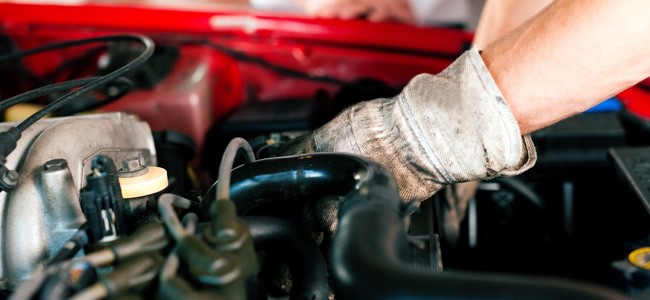
If you are experiencing a fluid leak, make an appointment with your trusted mechanic. They’ll be able to not only diagnose the problem but complete the necessary repairs.
Learn more about quality gaskets, find your car part, or find a local car repair shop today.
The content contained in this article is for entertainment and informational purposes only and should not be used in lieu of seeking professional advice from a certified technician or mechanic. We encourage you to consult with a certified technician or mechanic if you have specific questions or concerns relating to any of the topics covered herein. Under no circumstances will we be liable for any loss or damage caused by your reliance on any content.